Does inostiol help hair loss? In this article, we will talk about everything you need to know about inositol for hair loss. First, we will go over some of the basic benefits of inositol, the best accompanying foods, and using inositol for hair loss.
Then we will cover research studies and how inositol can help women with PCOS hair thinning. Finally, we will share the benefits of taking inositol and choline together for hair loss, plus the top 3 inositol supplements for hair growth.
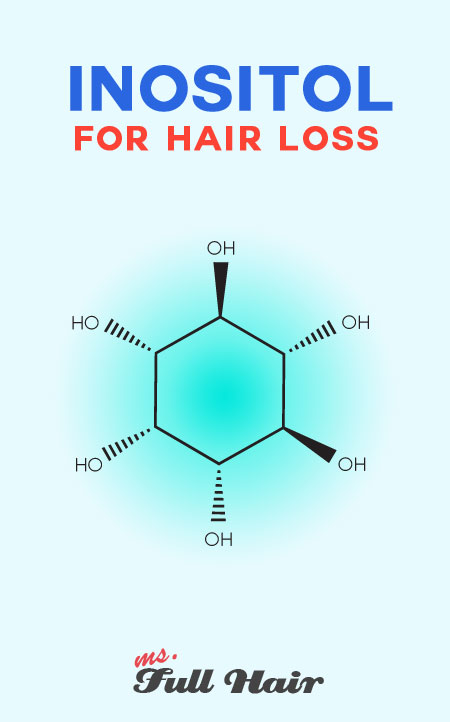
What is inositol?
Inositol, also known as myo-inositol, is a group of molecules responsible for signaling cells in the body.
While inositol is often referred to as myo-inositol, myo-inositol is actually one of the 9 inositol members in the most abundant form. This explains why most dietary supplements seen in the market use myo-inositol.
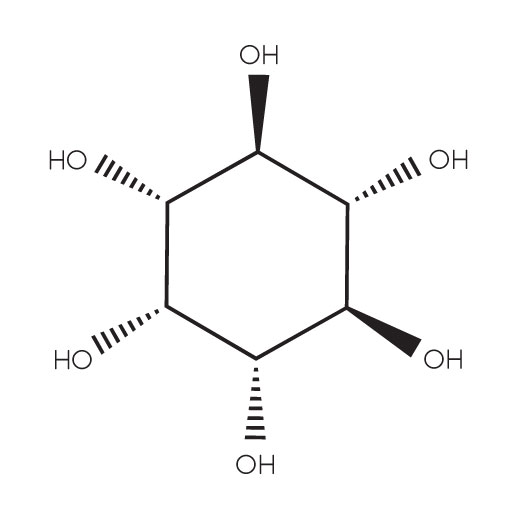
Here are 9 forms of inositol (Also known as stereoisomers):
- Myo-inositol (The most commonly used inositol on dietary supplements as well as for PCOS symptoms)
- Scyllo- inositol
- Muco-inositol
- D-Chiro inositol (DCI)
- L-Chiro inositol (LCI)
- Neo- inositol
- Allo- inositol
- Epi- inositol
- Cis- inositol
One interesting fact shows that inositol is actually not a Vitamin B8 (common misconception), but it’s rather a sugar alcohol with a vitamin-like compound equally important in our body.
Inositol benefits
Here is a complete list of inositol benefits from WebMD and Examine:
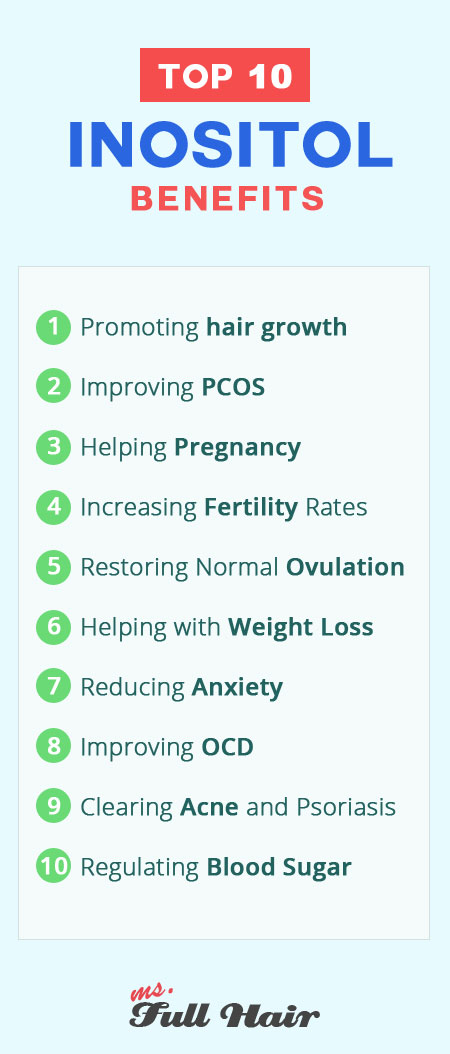
- Promoting hair growth
- Improving PCOS
- Helping pregnancy
- Increasing fertility rates
- Restoring normal ovulation
- Decreasing hirsutism
- Helping with weight loss
- Reducing anxiety and panic disorder
- Working as anti-depressant
- Improving OCD
- Clearing acne and psoriasis
- Improving insulin sensitivity
- Reducing diabetes
- Preventing Alzheimer’s Disease
- Regulating cholesterol (both HDL-C and LDL-C at optimal levels)
- Regulating blood sugar
- Regulating high blood pressure
- Helping with Schizophrenia
Inositol for hair loss – Will it give me new hair growth?
We found some interesting research studies as well as a real life example on how inositol can help with androgenetic alopecia – aka general diffused-thinning hair loss.
Research finding
Using inositol as a natural substance to decrease excessive testosterone: A number of studies (examples here and here) show that women with polycystic ovary syndrome (PCOS) often show symptoms of hyperandrogenism – excessive levels of androgens circulating in female (a testosterone hormone increase), whose side effect includes thinning hair on scalp (androgenic alopecia).
Hyperandrogenism also appears to have a close link to increased DHT activities according to Naturepathic Doctor News & Review. As you all know, DHT (Dihydrotestosterone) is your enemy when it comes to hair loss.
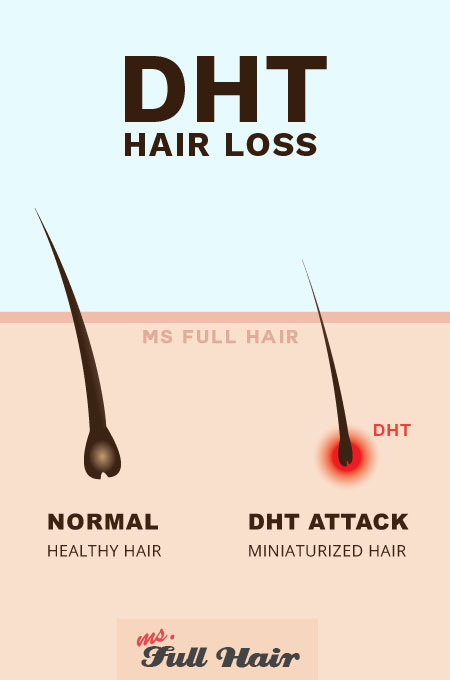
DHT is a converted form of testosterone by 5-alpha-reductase enzyme. When DHT attaches itself to androgen receptors on hair follicles, it causes your follicles to become miniaturized.
As your hair is getting thinner due to this miniaturization, it will eventually lead to what you call the most common form of hair loss – androgenetic alopecia (thinning on the crown, sides and edges, diffused thinning, as well as receding hairlines are the symptoms of AGA).
In other words, hyperandrogenism can result in hair loss due to an abnormal increase of testosterone in your body and skin’s increased sensitivity to DHT.
What is PCOS?
PCOS (Polycystic ovary syndrome) is a hormonal imbalance issue that affects up to 10% of women. It is often caused by two reasons – Glucose (insulin resistance) and androgen metabolisms (androgen excess). If you have PCOS and are currently experiencing hair loss, it’s likely to be due to the latter – androgen metabolism with overproduction of androgens in your body.
So is there any natural treatment for high androgen levels? Read along.
Hyperandrogenism treatment? Studies show inositol is your answer
One of the natural ways to treat hyperandrogenism is myo-inositol according to a number of studies (examples here and here).
A study published in the European Journal of Endrocrinology shows that a group of women with PCOS who received 1200 mg of myo-inositol per day for 12 weeks showed great improvement in decreases in androgen excess as well as decreases in weight loss.
Success stories
PCOS related hair loss
We also came across this blog who had great success on stopping her thinning hair using inositol. She had PCOS and one of the symptoms she experienced was severe hair loss.
To sum up her story, her hair loss stopped when she was taking 1500 mg/day. She is also additional taking inositol and choline for PCOS. For people who are experiencing PCOS’ related hair loss, she recommends inositol powder – A lot cheaper than buying inositol capsules.
No PCOS related hair loss
We found another success story in a forum. She talks about her bald patches of hair loss growing back only in 1.5 month. She initially started taking inositol for OCD and noticed her hair was unexpectedly growing back. She says she took 2-4 grams per day to see the effect.
Choline and inositol for hair growth
Now we talked about inositol, let’s briefly review choline.
Choline is an essential water-soluble nutrient found in every cell of the body. The choline role in body includes the proper functioning of the liver and nervous system, brain development, and maintaining the integrity of cellular structures.
Another important role of choline is in neurotransmitter synthesis, which is related to maintaining proper cognitive brain functions such as memory and regulating motor control.
How much choline a day? When it comes to daily intake recommendation, it’s 425 mg/day for women and 550mg/day for men according to Oregon State University.
NOTE: The highest choline-rich food is an egg yolk, which provides 680 mg per 100 grams according to a study.
Why take choline with inositol for hair growth?
Choline and inositol benefits: One of the main roles of inositol and choline is to keep the liver healthy by preventing the excessive accumulation of fats (or technical term – cholesterol and triglycerides).
With the help of inositol and choline, the liver can provide essential vitamins and minerals to every cell of your body including hair follicles. If the liver is not in good shape, your hair follicles don’t get proper nutrition, thus premature hair loss can occur.
Chlorine inositol dosage for stimulating hair growth: According to the book Smart Medicine for Healthier Living, Pratical A-Z Reference to Natural and Conventional Treatments for Adults, it suggests that high doses of inositol is helpful for stimulating hair regrowth and recommends people to take 200 milligrams 2 times a day.
If you are also planning to add choline, which the book agrees is a good compliment to inostiol, it recommends to take an equal amount to inositol… thus 200 mg of inositol and 200 mg of choline twice a day.
However, based on our research, we noticed that quite a number of people seem to take a higher dosage of choline and inositol supplements. For instance, popular choline/inositol supplements such as this have inositol 500 mg and choline 500 mg per serving. When you go through the reviews, you will see quite a number reporting great results in hair growth.
How to add Inositol for hair loss prevention
There are two ways you can add inositol for stimulating hair growth. First is food consumption with a high content of inositol and the next by taking supplements. Let’s go over the list of foods first.
Top 5 High in inositol foods from each category
Here are inositol-rich foods you can easily find in any grocery store (except for beef liver) (source here).
Try to incorporate more of these foods in your diet, especially in both the Grains and fruit categories. According to a study by The American Journal of Clinical Nutrition, citrus fruits, beans, grains and nuts have the highest content of myo-inositol. For instance, inositol content in oranges is 3.07 milligram per gram while inositol in grapefruits is about 2mg/g.
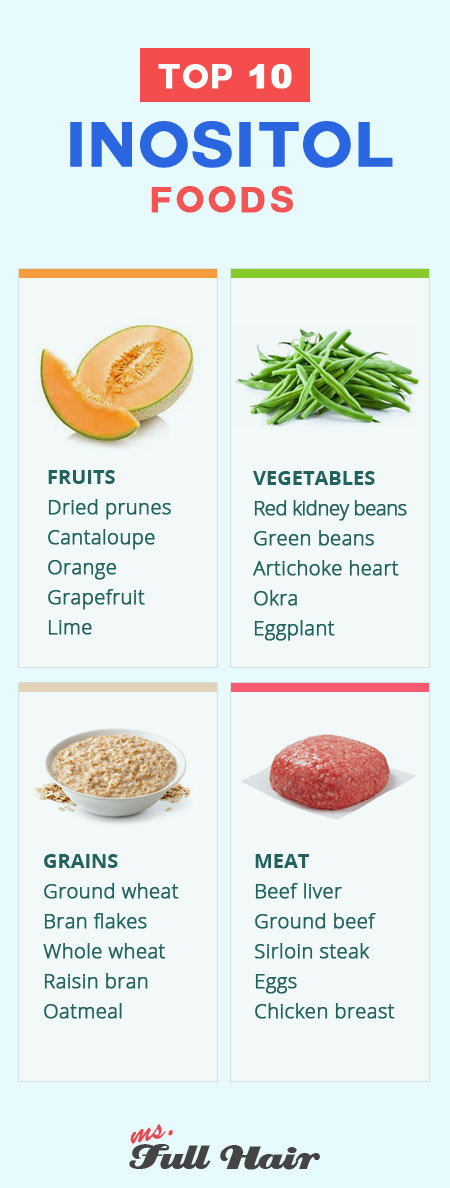
Fruits (Citrus fruits)
- Dried prunes
- Cantaloupe
- Orange
- Grapefruit
- Lime
Vegetables
- Red kidney beans
- Green beans
- Artichoke heart
- Okra
- Eggplant
Grains (you get the most inositol content from grain category)
- Ground wheat
- Bran flakes
- Whole wheat
- Raisin bran
- Oatmeal
Meat
- Beef liver
- Ground beef
- Sirloin steak
- Eggs
- Chicken breast
3 Best inositol supplements for hair growth
Supplements are more convenient for a majority of people in today’s world, because not many people have time to add inositol-rich foods in their daily meals. If you are going the supplement route, here are the 3 best inositol supplements to consider:
Now Inositol Powder
Now is a well-known natural supplement company that has been around for 40 years. This myo-inositol powder is an affordable and economical way of adding Insitol to your daily regime for hair growth.
Quite a number of reviewers with PCOS actually use this powder and report significant improvements in their PCOS symptoms as well as the benefits of preventing hair loss.
Solgar Choline/Inositol
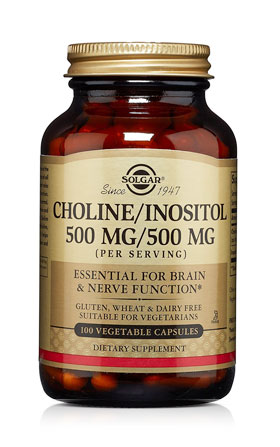
If you want to multiply hair growth benefits, consider Solgar’s choline Inositol supplement. While Solgar supplements in general are on the pricier side compared to many others, they are also known for making quality products.
Reading through the reviews, we noticed people reporting hair growth and increased volume in fine hair.
Best Naturals Inositol 1000 mg
If you are looking for a high dose of inositil in tablet/capsule form, try Best Naturals Inositil which has 1000 mg of inositol in each tablet. You’ll see lots of people with PCOS choose this supplement with happy results – increased energy in the body, lowering testosterone level and improvement in hair loss.
Inositol side effects:
There haven’t been major side effects reported using inositol according to WebMD and is currently categorized as possibly safe. Though, mild symptoms can include the following:
- Upset stomache
- Headache and dizziness
- Laxative effects
Inositol dosage – How much inositol should I take?
How much inositol for hair growth? Currently, there is no official recommended daily intake of Inisitol dosage for hair loss, but in general, people seem to take about 2 mg to 4 mg to treat their thinning hair.
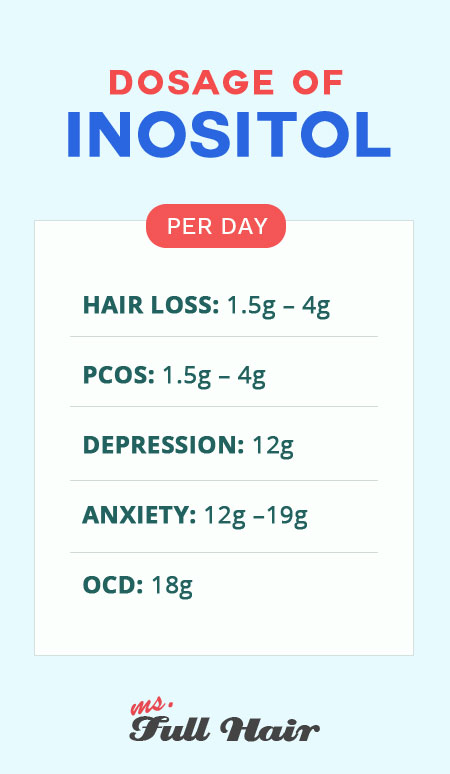
- Hair loss: 2 g – 4 g / day
- PCOS: 1.5 g – 4 g / day
- Depression: 12 g / day
- OCD: 18 g / day
- Panic disorders and anxiety: 12-19 g / day
- Lithium psoriasis: 6 g / day
Final takeaway
Can I take inositol for hair loss?
Based on our findings, people use inositol for both general hair loss and PCOS-related hair loss. If you have PCOS with a symptom of alopecia, consider taking 1.5mg of inositol a day and increase up to 4g per day, in which people report positive results in reduction in hair falling out as well as new hair growth (Get powder for affordability).
If you are planning to use inositol for hair loss without any additional symptoms (such as PCOS), try choline inositol supplements as the above book suggested for treating hair loss.
Have you tried inositol for hair growth? Share your experience below!


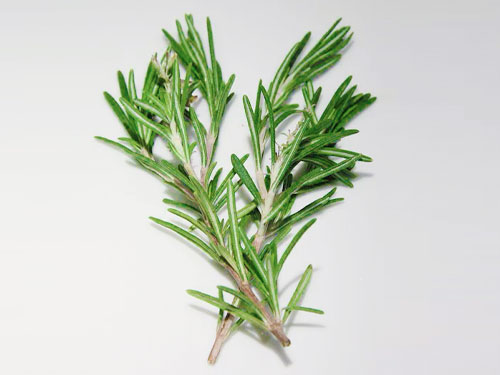
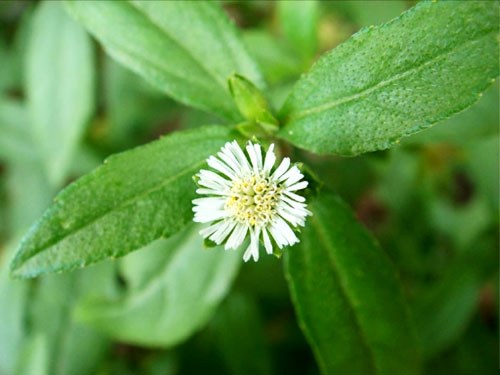
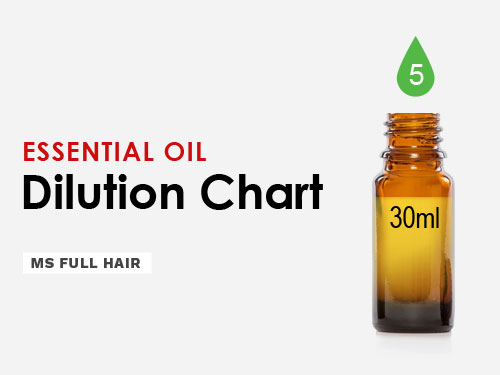
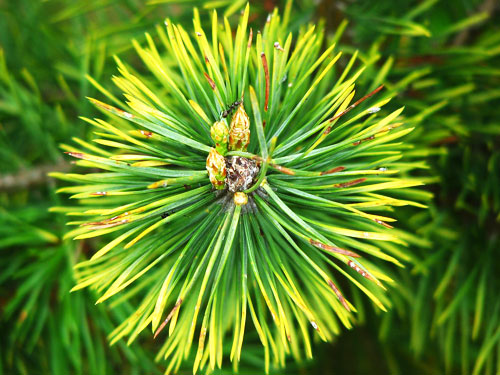

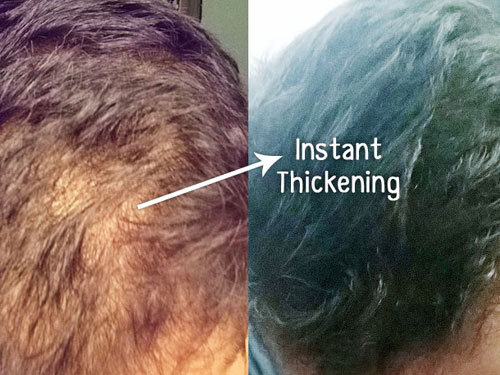

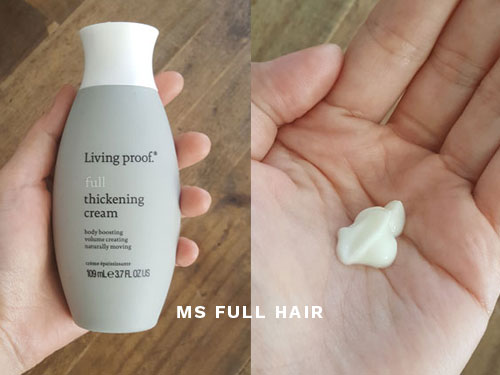
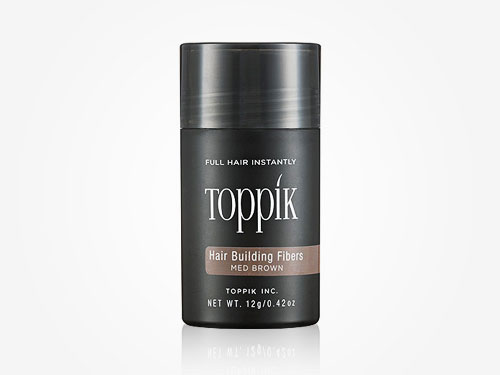
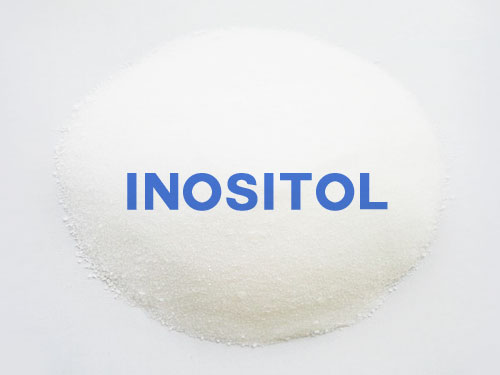
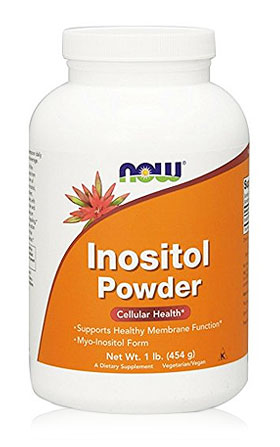
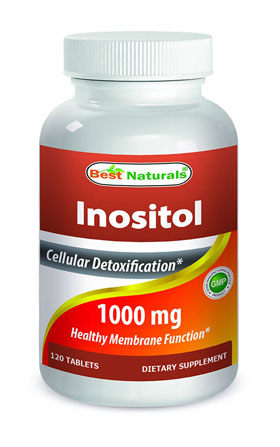
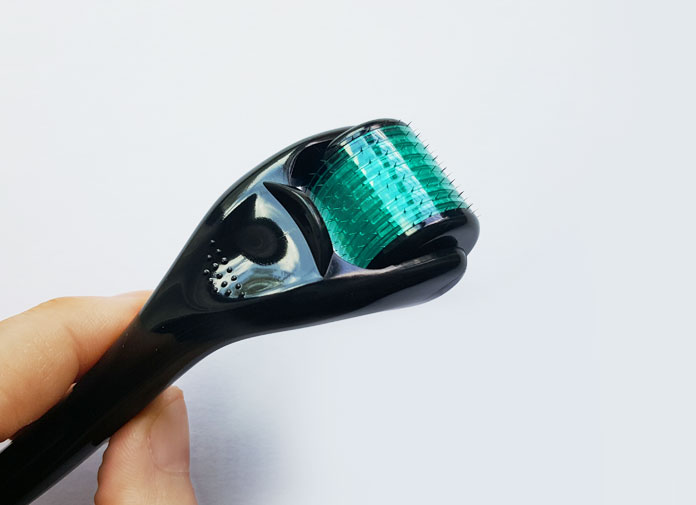
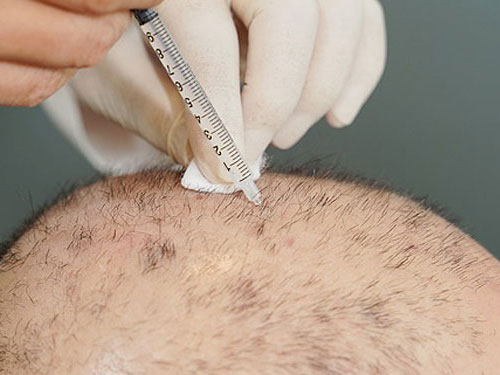
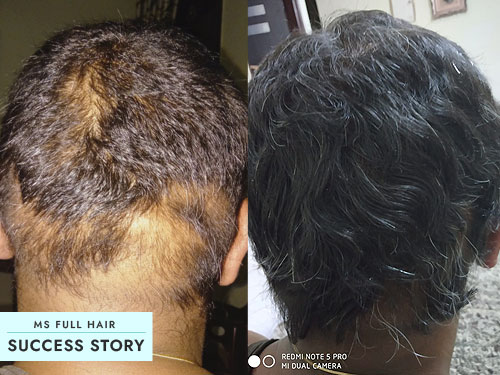
Chlorine inositol dosage for stimulating hair growth: According to the book Smart Medicine for Healthier Living, Pratical A-Z Reference to Natural and Conventional Treatments for Adults, it suggests that high doses of inositol is helpful for stimulating hair regrowth and recommends people to take 200 milligrams 2 times a day.
Please check the spelling of the first word!